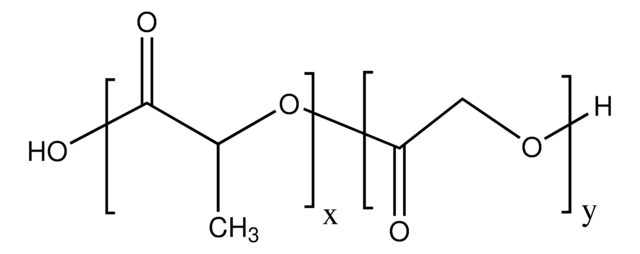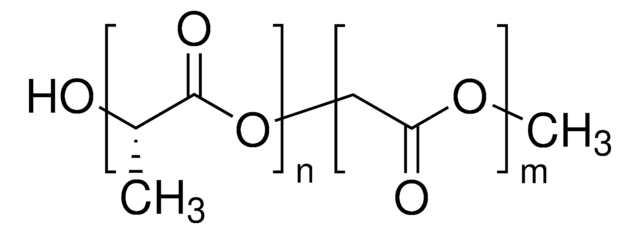900400
SLAP 3-SpiroCyHex N-Bn Pip Reagent
≥95%
Synonym(s):
1-((Benzyl((trimethylsilyl)methyl)amino)methyl)cyclohexanamine
About This Item
Recommended Products
Assay
≥95%
form
liquid
refractive index
n/D 1.516
density
0.956 g/mL
functional group
amine
phenyl
storage temp.
−20°C
InChI
1S/C18H32N2Si/c1-21(2,3)16-20(14-17-10-6-4-7-11-17)15-18(19)12-8-5-9-13-18/h4,6-7,10-11H,5,8-9,12-16,19H2,1-3H3
InChI key
HHDPYUUHZQUCNL-UHFFFAOYSA-N
Application
Other Notes
- Technology Spotlight: SLAP Reagents for Piperazine Synthesis
- Silicon Amine Reagents for the Photocatalytic Synthesis of Piperazines from Aldehydes and Ketones
- Lewis Acid Induced Toggle from Ir(II) to Ir(IV) Pathways in Photocatalytic Reactions: Synthesis of Thiomorpholines and Thiazepanes from Aldehydes and SLAP Reagents.
- Continuous Flow Synthesis of Morpholines and Oxazepanes with Silicon Amine Protocol (SLAP) Reagents and Lewis Acid Facilitated Photoredox Catalysis
related product
Signal Word
Warning
Hazard Statements
Precautionary Statements
Hazard Classifications
Eye Irrit. 2 - Skin Irrit. 2 - STOT SE 3
Target Organs
Respiratory system
Storage Class Code
10 - Combustible liquids
WGK
WGK 3
Choose from one of the most recent versions:
Certificates of Analysis (COA)
Sorry, we don't have COAs for this product available online at this time.
If you need assistance, please contact Customer Support.
Already Own This Product?
Find documentation for the products that you have recently purchased in the Document Library.
Protocols
The expanding class of SLAP reagents provides access to saturated N-heterocycles and aliphatic aldehydes and ketones without additional reagents or the generation of toxic byproducts.
The expanding class of SLAP reagents provides access to saturated N-heterocycles and aliphatic aldehydes and ketones without additional reagents or the generation of toxic byproducts.
The expanding class of SLAP reagents provides access to saturated N-heterocycles and aliphatic aldehydes and ketones without additional reagents or the generation of toxic byproducts.
The expanding class of SLAP reagents provides access to saturated N-heterocycles and aliphatic aldehydes and ketones without additional reagents or the generation of toxic byproducts.
Our team of scientists has experience in all areas of research including Life Science, Material Science, Chemical Synthesis, Chromatography, Analytical and many others.
Contact Technical Service









